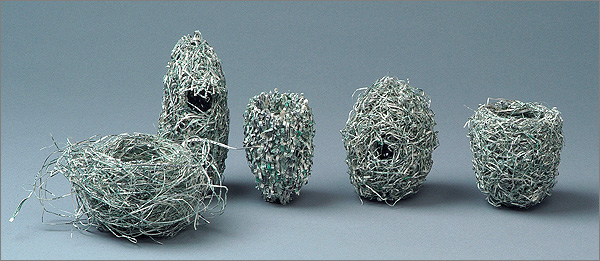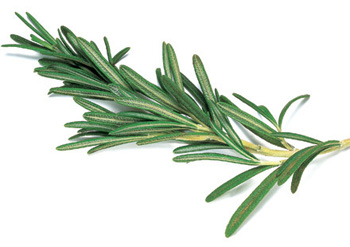
I’ve always liked the witty, organic forms of Fiona Hall‘s sculpture. A massive collection of her work, Fiona Hall: Force Field, currently fills two floors of Sydney’s Museum of Contemporary Art. It’s an almost overwhelming but immensely satisfying journey through her mind.
The photograph shows details from “Tender”, a collection of birds’ nests made from shredded US dollar bills. They’re incredibly realistic — especially in the exhibition environment where they’re collected into museum-style glass cases with each species’ nest labelled with its scientific name on the front of the case, the banknotes’ serial numbers listed on the back.
Other works include the finely-detailed sculptures of Paradisus Terrestris made from sardine cans, Scar Tissue, Understorey, Cell Culture and Leaf Litter. There’s also a smattering her photographs, and something about bees.
Cell Culture and many other works such as Dead in the Water are constructed from myriad tiny glass beads threaded on fine wire, shaped with loving attention to detail into precise organic forms. Photographs do not do them justice — you must see them in three dimensions, walk around them, revel in their reality. A video shot on a tropical field trip with botanists in search of blooming water lilies reveals Hall’s passion for getting it right.
Hall’s work explores the boundaries between the natural and the man-made with subtlety and humour. Works like Leaf Litter show how the global plantscape has been shaped by human economic “needs”. I’m still bubbling with the thoughts it triggered the morning after.
Fiona Hall: Force Field is at Sydney’s MCA until 1 June 2008. Free entry. Give yourself at least an hour for just this exhibition, let alone what else the venue offers.
[Photograph: Details from “Tender” 2003-2005; Image from Roslyn Oxley9 Gallery via UTS Gallery.]


